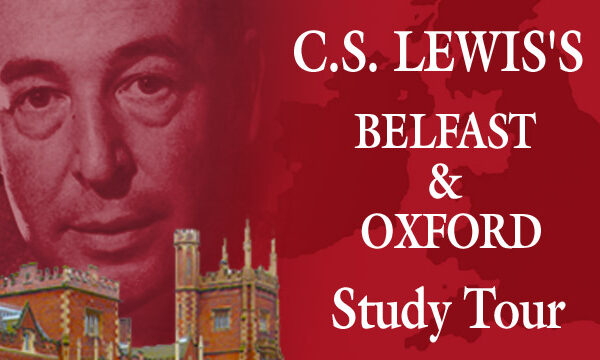Back to series

August 2014
In his book, Letters to Malcolm: Chiefly on Prayer, C.S. Lewis points out that when we create a divide between secular and sacred, whether theoretical or practical, that we're on dangerous ground. All of life is to be lived for God and thus one could say that all of life is religious. Lewis writes,
I can well understand how a man who is trying to love God and his neighbour should come to dislike the very word religion; a word, by the way, which hardly ever appears in the New Testament. Newman makes my blood run cold when he says in one of the Parochial and Plain Sermons that Heaven is like a church because, in both, 'one single sovereign subject—religion—is brought before us." He forgets that there is no temple in the new Jerusalem.
 He has substituted religion for God—as if navigation were substituted for arrival, or battle for victory, or wooing for marriage, or in general the means for the end. But even in this present life, there is danger in the very concept of religion. It carries the suggestion that this is one more department of life, an extra department added to the economic, the social, the intellectual, the recreational, and all the rest. But that whose claims are infinite can have no standing as a department. Either it is an illusion or else our whole life falls under it. We have no non-religious activities; only religious and irreligious.
He has substituted religion for God—as if navigation were substituted for arrival, or battle for victory, or wooing for marriage, or in general the means for the end. But even in this present life, there is danger in the very concept of religion. It carries the suggestion that this is one more department of life, an extra department added to the economic, the social, the intellectual, the recreational, and all the rest. But that whose claims are infinite can have no standing as a department. Either it is an illusion or else our whole life falls under it. We have no non-religious activities; only religious and irreligious.
Religion, nevertheless, appears to exist as a department, and, in some ages, to thrive as such. It thrives partly because there exists in many people a 'love of religious observances,' which I think Simone Weil is quite right in regarding as a merely natural taste. There exists also—Vidler is rather good on this—the delight in religious (as in any other) organisation. Then all sorts of aesthetic, sentimental, historical, political interests are drawn in. Finally sales of work, the parish magazine, and bell-ringing, and Santa Claus.
None of them bad things. But none of them is necessarily of more spiritual value than the activities we call secular. And they are infinitely dangerous when this is not understood. This department of life, labelled 'sacred,' can become an end in itself; an idol that hides both God and my neighbours. ('When the means are autonomous they are deadly.') It may even come about that a man's most genuinely Christian actions fall entirely outside that part of his life which he calls religious.
It's easy to compartmentalize our lives and separate our work from our home life, and our social life from the worship service at church on Sunday. God doesn't work that way, however, as He asks for all of our life to be submitted to His authority and leading. Of course, He does this for our own good, so that we can enjoy all parts of our lives to the fullest. In this way, true joy comes from living a life in which all of life is "religious," or done in worship of the Creator.
“So whether you eat or drink or whatever you do, do it all for the glory of God."
1 CORINTHIANS 10:31 (NIV)
1 C.S. Lewis. Letters to Malcolm on Prayer: Chiefly on Prayer. Touchstone: New York, 1992, pp. 29-31.
 COPYRIGHT: This publication is published by C.S. Lewis Institute; 8001 Braddock Road, Suite 301; Springfield, VA 22151. Portions of the publication may be reproduced for noncommercial, local church or ministry use without prior permission. Electronic copies of the PDF files may be duplicated and transmitted via e-mail for personal and church use. Articles may not be modified without prior written permission of the Institute. For questions, contact the Institute: 703.914.5602 or email us.
COPYRIGHT: This publication is published by C.S. Lewis Institute; 8001 Braddock Road, Suite 301; Springfield, VA 22151. Portions of the publication may be reproduced for noncommercial, local church or ministry use without prior permission. Electronic copies of the PDF files may be duplicated and transmitted via e-mail for personal and church use. Articles may not be modified without prior written permission of the Institute. For questions, contact the Institute: 703.914.5602 or email us.
-
Recent Podcasts
A Welcome Change in Apologetics
by Randy Newman, Aimee Riegert on April 19, 2024We’re burdened for our friends who don’t know...Read More
-
Questions That Matter Podcast – Samuel James and Digital Liturgies
by Samuel James, Randy Newman on April 19, 2024
-
The Side B Stories – Dr. James Tour’s story
by Jana Harmon, James Tour on April 12, 2024
-
Recent Publications
Isn’t Morality Relative?
by Christopher L. Reese on April 1, 2024It is widely accepted in the Western world...Read More
-
Do Muslims and Christians Worship the Same God?
by Andy Bannister on March 1, 2024
-
Artificial Intelligence and Its Impacts on Humanity
by John Lennox on February 13, 2024
0
All Booked
0.00
All Booked
0.00
All Booked
20599
GLOBAL EVENT: 2024 Study Tour of C.S. Lewis’s Belfast & Oxford
https://www.cslewisinstitute.org/?event=global-event-2023-study-tour-of-c-s-lewis-belfast-oxford-2&event_date=2024-06-22®=1
https://www.paypal.com/cgi-bin/webscr
2024-06-22

Next coming event
Days
Hours
Minutes
Seconds
GLOBAL EVENT: 2024 Study Tour of C.S. Lewis’s Belfast & Oxford
On June 22, 2024 at 12:00 pmat Belfast, Northern Ireland & Oxford, EnglandSpeakers

C.S. Lewis Institute
Author





